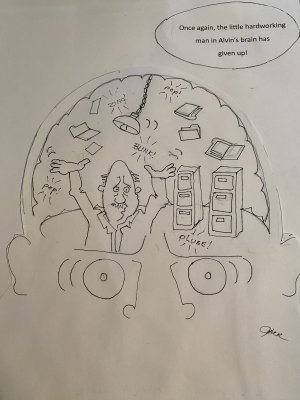bobcat
Well-known Member
- Location
- Northern Calif
According to recent studies, the engrams (packets of cells in your brain) that store information, also continue to retain that information, even though you can't access it. Think of it like the memory is stored in a lock box, and you just don't readily have the key, but perhaps you may find it later. Even in dementia patients, the memories are still there, just not accessible, except during lucid moments. But realizing this may lead to ways in which memories can be brought back.
Anyway, from the studies, it appears that forgetting is actually a deliberate act of the brain, that allows for more flexibility and better decision making, or so the new theory goes. From experiments, when those cells are activated (Stimulated with light), the memory returns. So, in "light" of that, forgetting may be advantageous, and an adaptation to have a more functional brain.
That being the case, don't fret over things you don't remember, your brain has just set that bobble of information aside because it has more important things to focus on. I guess the thing that puzzles me is, why can't I forget the things I don't want to remember?
Anyway, from the studies, it appears that forgetting is actually a deliberate act of the brain, that allows for more flexibility and better decision making, or so the new theory goes. From experiments, when those cells are activated (Stimulated with light), the memory returns. So, in "light" of that, forgetting may be advantageous, and an adaptation to have a more functional brain.
That being the case, don't fret over things you don't remember, your brain has just set that bobble of information aside because it has more important things to focus on. I guess the thing that puzzles me is, why can't I forget the things I don't want to remember?



